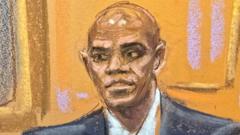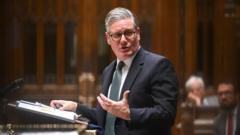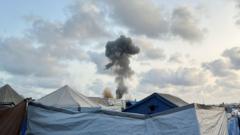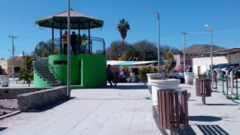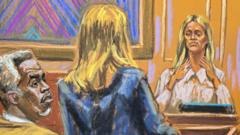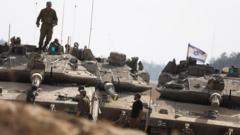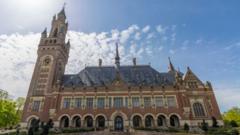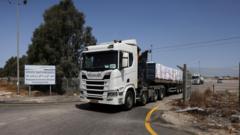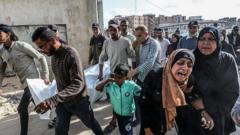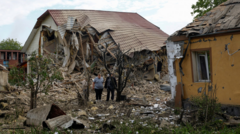Daniella Weiss, a key figure in the Israeli settler movement, faces UK sanctions amid ongoing violence and intimidation against Palestinian communities.
UK Imposes Sanctions on Influential Israeli Settler Daniella Weiss

UK Imposes Sanctions on Influential Israeli Settler Daniella Weiss
UK's Foreign Secretary declares action against extremist settlers as tensions rise
The UK government has taken a firm stance against Daniella Weiss, an influential figure in the Israeli settler movement, imposing sanctions that symbolize its commitment to accountability amid rising tensions in the region. Known as the "godmother" of the settler movement, Weiss, 79, has long been instrumental in establishing Jewish settlements in the Israeli-occupied territories of the West Bank and East Jerusalem.
Foreign Secretary David Lammy announced the sanctions, emphasizing the UK’s determination to confront extremist settlers responsible for violence against Palestinian communities. Weiss leads a radical organization named Nachala, which was also sanctioned. The UK sanctions document highlights her alleged involvement in acts of aggression and intimidation against Palestinian individuals.
The legality of these settlements is disputed globally, with the majority of the international community considering them illegal under international law, a view recently supported by an advisory opinion from the International Court of Justice. In response to the sanctions, an Israeli foreign ministry spokesperson criticized them as "unjustified," reflecting the ongoing tensions between the UK and Israel over settlement policies.
Weiss's controversial statements have garnered media attention, including in a recent documentary by Louis Theroux, where she expressed her views on the future of Gaza's inhabitants. Following the sanctions, Weiss declared that many families were ready to commence settlement efforts in Gaza, urging a continued Israeli military effort against perceived enemies.
In addition to Weiss, the UK sanctions also target other settlers, illegal outposts, and entities linked to settlement construction. These developments have prompted the UK government to halt free trade negotiations with Israel, further heightening tensions in the diplomatic relationship. This decision follows a joint statement from leaders of the UK, France, and Canada demanding an end to military operations and the immediate resumption of humanitarian aid in Gaza.
As the situation develops, the UK government has expressed concerns that ongoing Israeli actions threaten Palestinian communities and undermine the viability of a two-state solution. Meanwhile, the Israeli government defends its policies as essential for national security, amid calls for increased international intervention in the region.
Foreign Secretary David Lammy announced the sanctions, emphasizing the UK’s determination to confront extremist settlers responsible for violence against Palestinian communities. Weiss leads a radical organization named Nachala, which was also sanctioned. The UK sanctions document highlights her alleged involvement in acts of aggression and intimidation against Palestinian individuals.
The legality of these settlements is disputed globally, with the majority of the international community considering them illegal under international law, a view recently supported by an advisory opinion from the International Court of Justice. In response to the sanctions, an Israeli foreign ministry spokesperson criticized them as "unjustified," reflecting the ongoing tensions between the UK and Israel over settlement policies.
Weiss's controversial statements have garnered media attention, including in a recent documentary by Louis Theroux, where she expressed her views on the future of Gaza's inhabitants. Following the sanctions, Weiss declared that many families were ready to commence settlement efforts in Gaza, urging a continued Israeli military effort against perceived enemies.
In addition to Weiss, the UK sanctions also target other settlers, illegal outposts, and entities linked to settlement construction. These developments have prompted the UK government to halt free trade negotiations with Israel, further heightening tensions in the diplomatic relationship. This decision follows a joint statement from leaders of the UK, France, and Canada demanding an end to military operations and the immediate resumption of humanitarian aid in Gaza.
As the situation develops, the UK government has expressed concerns that ongoing Israeli actions threaten Palestinian communities and undermine the viability of a two-state solution. Meanwhile, the Israeli government defends its policies as essential for national security, amid calls for increased international intervention in the region.


